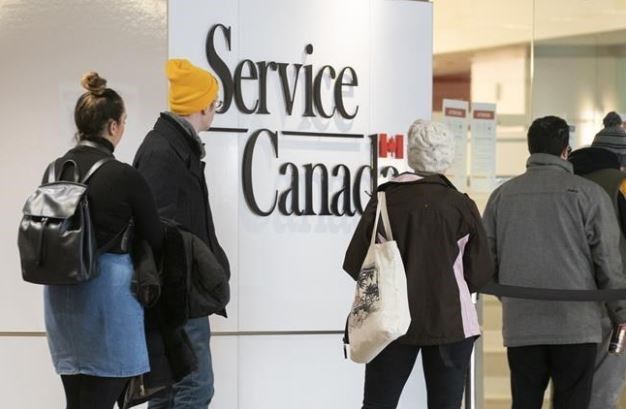About 1.7 million Canadians have fallen into debt with the federal government after Service Canada determined they need to repay up to $2,000 in COVID-19 emergency payments.
Dubbed the Canada Emergency Response Benefit (CERB), Ottawa rushed $2,000 in emergency supports to Canadians shortly after the pandemic began in 2020. This advance payment was to be repaid by reducing regular CERB payments over the course of 2020. But many of those who received the advance payment did not repay it as they did not remain on CERB. Now, those recipients are receiving notices of debt, according to Employment and Social Development Canada, which manages social benefits and services via Service Canada.
“A total of 1.7M clients were unable to fully reconcile this advance payment and therefore will have a debt established,” a ministry spokesperson for Employment and Social Development Canada told Glacier Media in an email. “The notices of these debts to Service Canada will continue to be established over the next couple months.”
The spokesperson added that the federal government will work with Canadians who owe money “to establish flexible repayment schedules with an eye to their ability to pay.”
The ministry did not answer questions over how much money could be collected; but not every case will garner a full $2,000 repayment, the ministry indicated.
The $2,000 payment was issued “urgently in order to provide immediate income support to Canadians when they needed it the most,” said the spokesperson.
There were only about one million Canadians whose advance payment was eventually repaid in the summer when regular CERB payments were lowered to compensate for it.
To clarify, the repayments are unrelated to tax filings.
Those who applied on or after June 14, 2020 did not receive the advance payment of $2,000.
Overall, CERB payments assisted eight million workers and their family members during the first year of the COVID-19 pandemic, according to the ministry.
The repayment of advance payments are not connected to a round of ineligible payments made to self-employed individuals that came to a head in the lead up to last year's tax deadline. At the time, the federal government sought repayments to those with 2019 gross income of at least $5,000. It later backed down due to reported miscommunication on its part.


